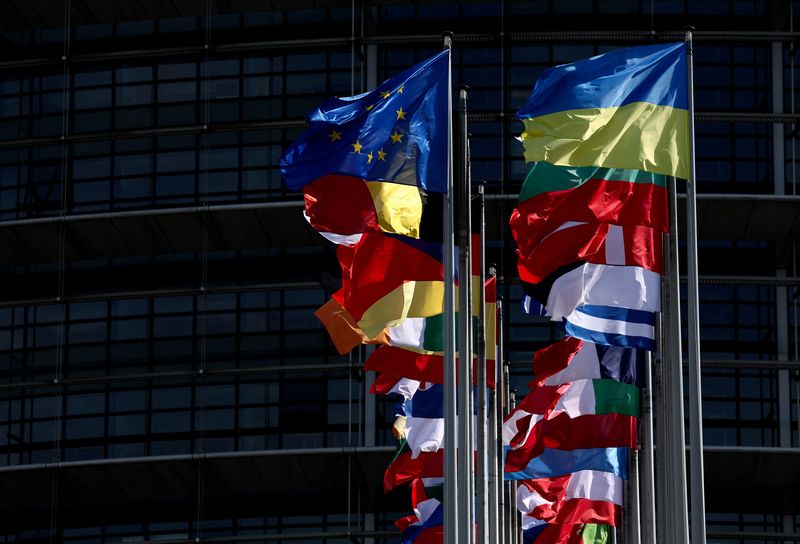BRUSSELS (Reuters) - The European Parliament on Wednesday adopted a deal to set binding targets for airlines in Europe to increase their use of sustainable aviation fuels.
The approved proposal aims to increase both demand for and supply of sustainable aviation fuels (SAF), which have net-zero CO2 emissions or lower CO2 emissions than fossil fuel kerosene.
Fuel suppliers must ensure that 2% of fuel made available at EU airports is SAF in 2025, rising to 6% in 2030, 20% in 2035 and gradually to 70% in 2050.
From 2030, 1.2% of fuels must also be synthetic fuels, rising to 35% in 2050. Synthetic fuels are made using captured CO2 emissions, which proponents say balances out the CO2 released when the fuel is combusted in an engine.
For now, these fuels are produced in tiny quantities and are far more expensive than conventional aviation fuels.
Sustainable fuel is seen as a route to start gradually reducing air travel's carbon footprint in the near-term.

"The five leading European aviation associations representing Europe's airlines, airports, civil aeronautics industry and air navigation service providers (...) welcomed the adoption of the refuel EU Aviation Regulation and look forward to further SAF deployment globally," Airlines for Europe, EU's largest airline association, said in a statement.
EU countries must now approve the deal before it can pass into law.